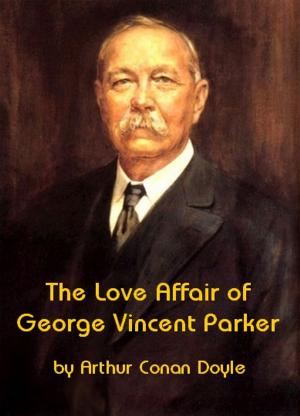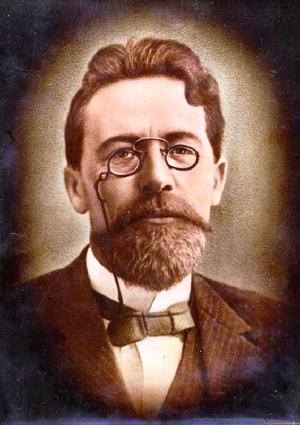| Author: | Edward Bulwer-Lytton (Lord Lytton) | ISBN: | 1230000144624 |
| Publisher: | WDS Publishing | Publication: | June 23, 2013 |
| Imprint: | Language: | English |
| Author: | Edward Bulwer-Lytton (Lord Lytton) |
| ISBN: | 1230000144624 |
| Publisher: | WDS Publishing |
| Publication: | June 23, 2013 |
| Imprint: | |
| Language: | English |
Of the many illustrious thinkers whom the schools of France have
contributed to the intellectual philosophy of our age, Victor Cousin,
the most accomplished, assigns to Maine de Biran the rank of the most
original.
In the successive developments of his own mind, Maine de Biran may,
indeed, be said to represent the change that has been silently at work
throughout the general mind of Europe since the close of the last
century. He begins his career of philosopher with blind faith in
Condillac and Materialism. As an intellect severely conscientious in
the pursuit of truth expands amidst the perplexities it revolves,
phenomena which cannot be accounted for by Condillac's sensuous theories
open to his eye. To the first rudimentary life of man, the animal life,
"characterized by impressions, appetites, movements, organic in their
origin and ruled by the Law of Necessity," [1] he is compelled to add,
"the second, or human life, from which Free-will and Self-consciousness
emerge." He thus arrives at the union of mind and matter; but still a
something is wanted,--some key to the marvels which neither of these
conditions of vital being suffices to explain. And at last the
grand self-completing Thinker attains to the Third Life of Man in Man's
Soul.
"There are not," says this philosopher, towards the close of his last
and loftiest work,--"there are not only two principles opposed to
each other in Man,--there are three. For there are in him three
lives and three orders of faculties. Though all should be in accord
and in harmony between the sensitive and the active faculties
which constitute Man, there would still be a nature superior, a
third life which would not be satisfied; which would make felt
(ferait sentir) the truth that there is another happiness, another
wisdom, another perfection, at once above the greatest human
happiness, above the highest wisdom, or intellectual and moral
perfection of which the human being is susceptible." [2]
Now, as Philosophy and Romance both take their origin in the Principle of
Wonder, so in the "Strange Story" submitted to the Public it will be
seen that Romance, through the freest exercise of its wildest vagaries,
conducts its bewildered hero towards the same goal to which Philosophy
leads its luminous Student, through far grander portents of Nature, far
higher visions of Supernatural Power, than Fable can yield to Fancy.
That goal is defined in these noble words:--
Of the many illustrious thinkers whom the schools of France have
contributed to the intellectual philosophy of our age, Victor Cousin,
the most accomplished, assigns to Maine de Biran the rank of the most
original.
In the successive developments of his own mind, Maine de Biran may,
indeed, be said to represent the change that has been silently at work
throughout the general mind of Europe since the close of the last
century. He begins his career of philosopher with blind faith in
Condillac and Materialism. As an intellect severely conscientious in
the pursuit of truth expands amidst the perplexities it revolves,
phenomena which cannot be accounted for by Condillac's sensuous theories
open to his eye. To the first rudimentary life of man, the animal life,
"characterized by impressions, appetites, movements, organic in their
origin and ruled by the Law of Necessity," [1] he is compelled to add,
"the second, or human life, from which Free-will and Self-consciousness
emerge." He thus arrives at the union of mind and matter; but still a
something is wanted,--some key to the marvels which neither of these
conditions of vital being suffices to explain. And at last the
grand self-completing Thinker attains to the Third Life of Man in Man's
Soul.
"There are not," says this philosopher, towards the close of his last
and loftiest work,--"there are not only two principles opposed to
each other in Man,--there are three. For there are in him three
lives and three orders of faculties. Though all should be in accord
and in harmony between the sensitive and the active faculties
which constitute Man, there would still be a nature superior, a
third life which would not be satisfied; which would make felt
(ferait sentir) the truth that there is another happiness, another
wisdom, another perfection, at once above the greatest human
happiness, above the highest wisdom, or intellectual and moral
perfection of which the human being is susceptible." [2]
Now, as Philosophy and Romance both take their origin in the Principle of
Wonder, so in the "Strange Story" submitted to the Public it will be
seen that Romance, through the freest exercise of its wildest vagaries,
conducts its bewildered hero towards the same goal to which Philosophy
leads its luminous Student, through far grander portents of Nature, far
higher visions of Supernatural Power, than Fable can yield to Fancy.
That goal is defined in these noble words:--















